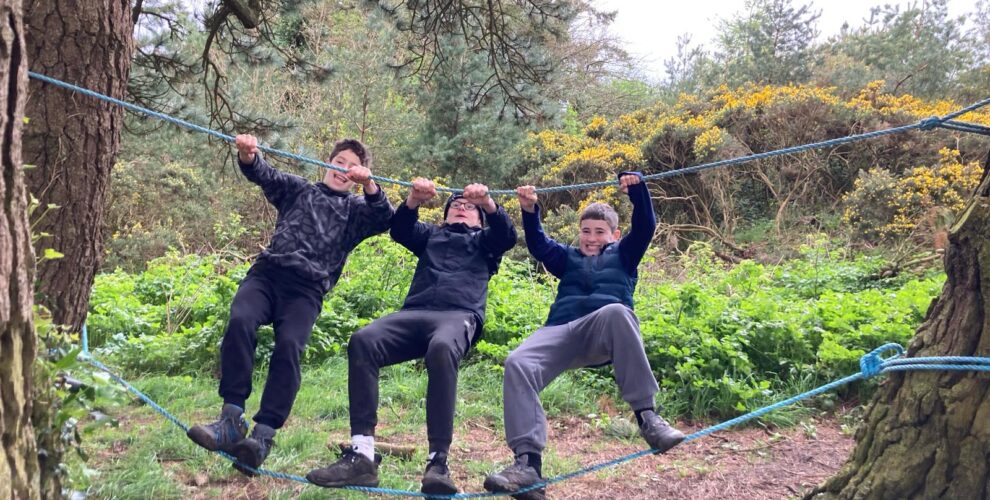22nd march 2024
On the day of the final DSP Forest School session for the 6th class students, the sky was grey, and we felt chilly and windy as we arrived at Killiney Hill. The theme was to go through the Forest School ethos which is “a long-term process of regular sessions.”
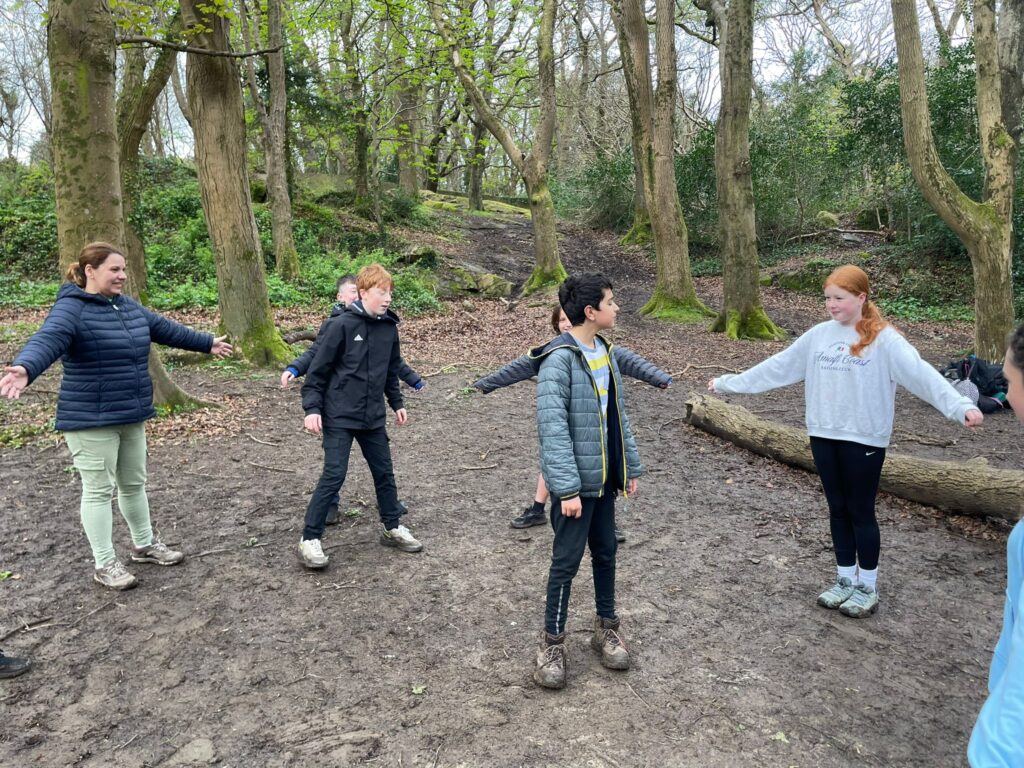
Most of the children in the group started forest school when they were in Junior Infants, and have returned to it every year or every 2 years throughout their primary school years. When they were in infants’ classes, the woodland was a magical place where there were fairies, a grandmother tree, mysterious leaves and cool sticks that they could make weapons and wands. Little insects and animals under the earth were all friends, and every part of nature – smells, touches, tastes and beauty of it fascinated them. The fascination, excitement, connection and respect they felt using all of their body at that developmental stage should be ingrained in their body and soul.
Also, they have experienced the Forest School way of learning – the child-led, trial and error, responsibility to make themselves and everyone surrounding them safe and happy, they have experienced, has given them opportunities to develop self-belief, confidence, empathy, and empowerment, which wouldn’t necessarily as accessible in the class room environment.
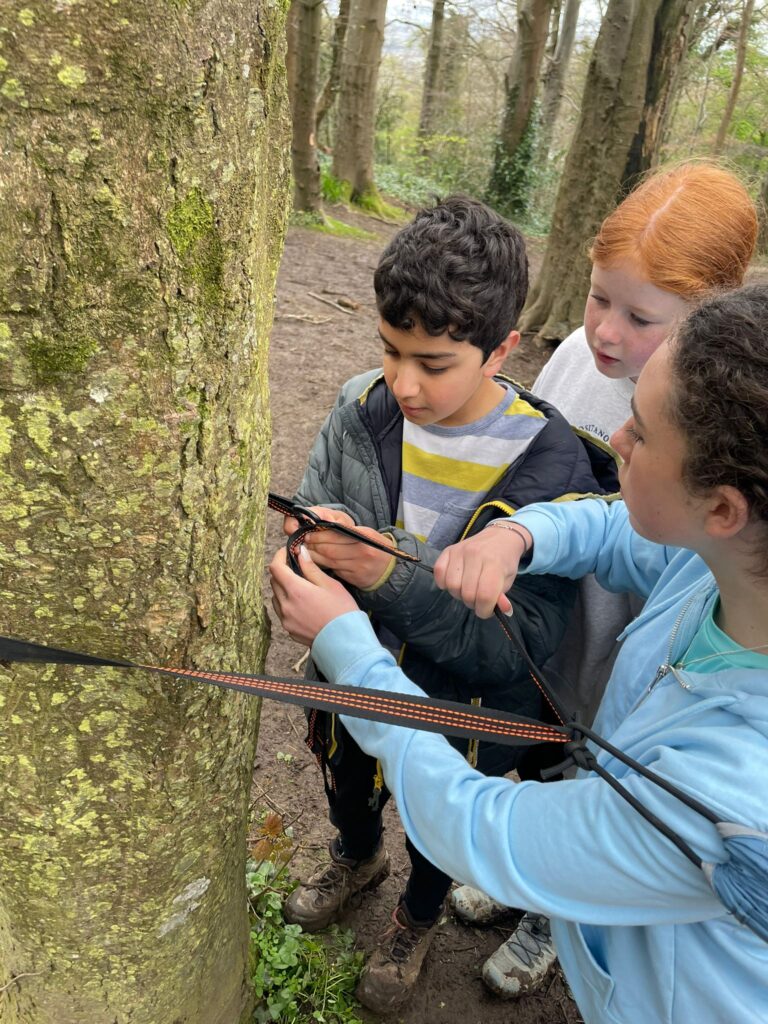
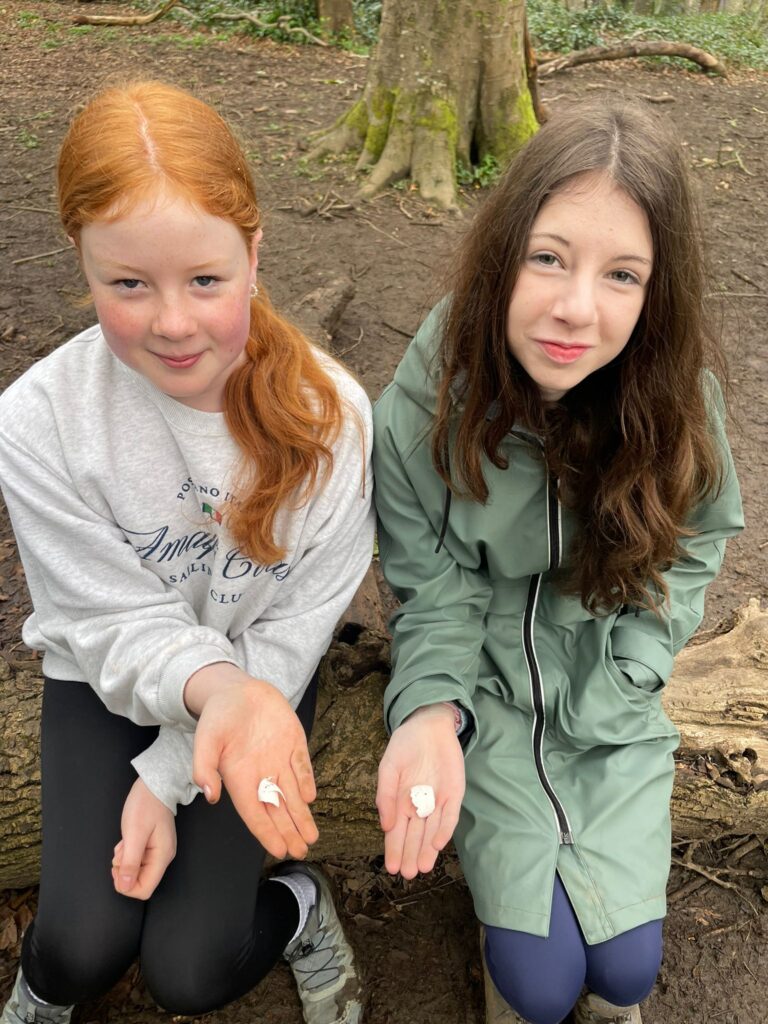
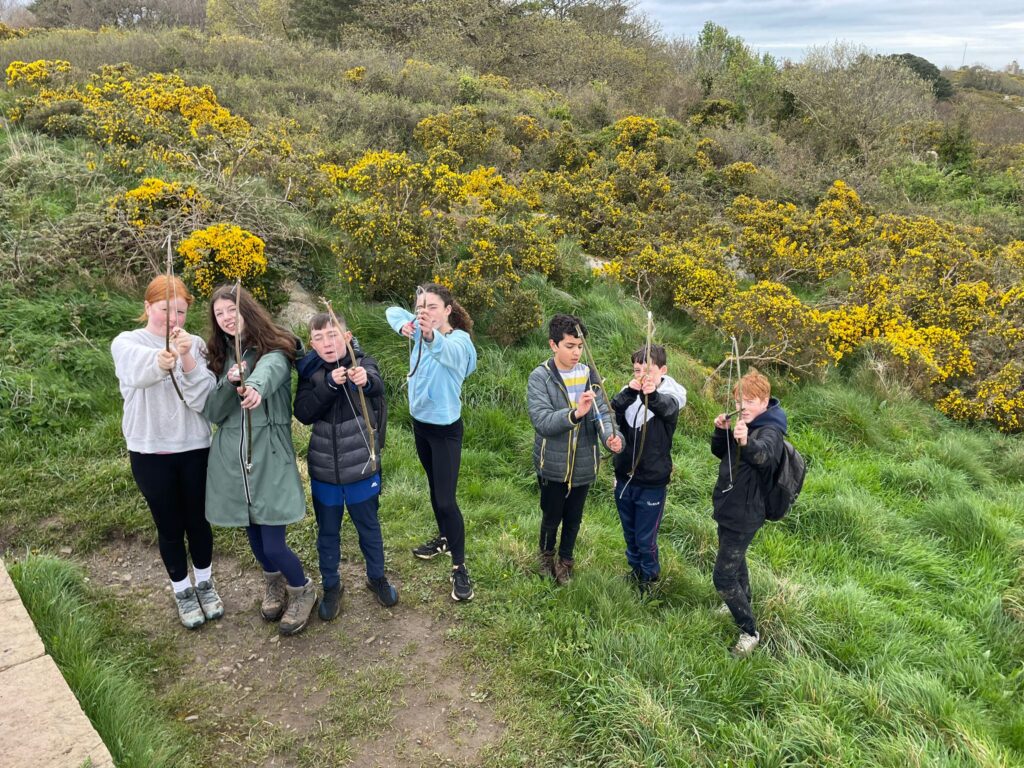
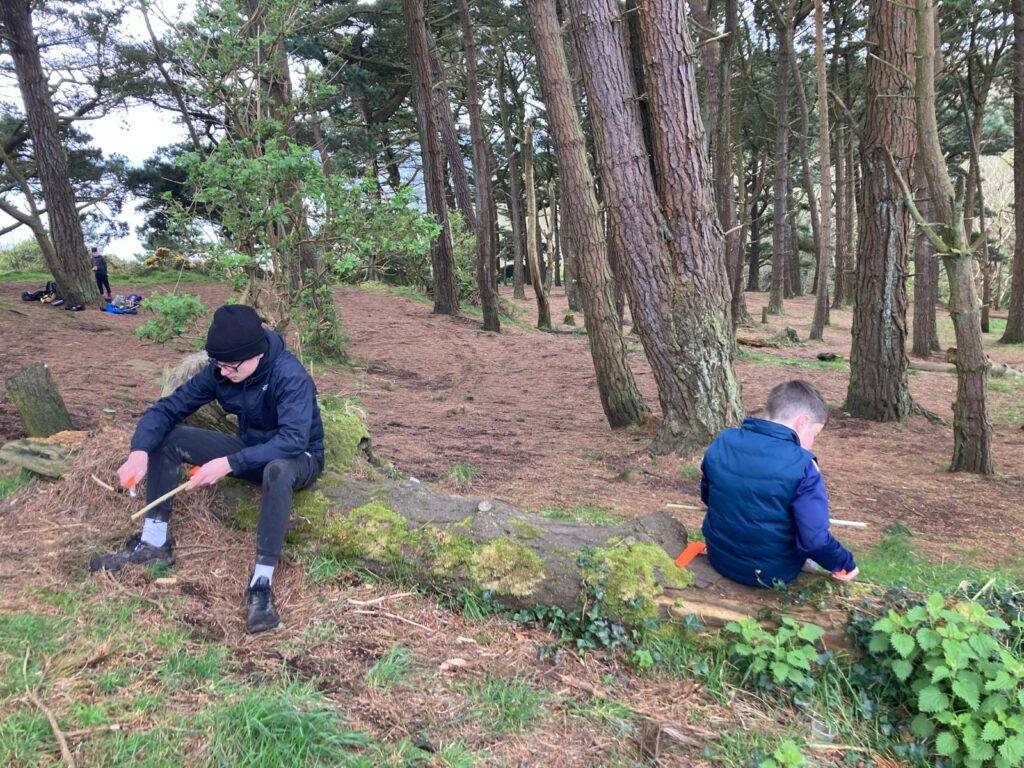
These children are now 11-12 years old, and facing into adolescence. They have started searching for deeper meaning in what they see and are taught, and making social groupings is a very important part of their lives. Forest school for them becomes an important place to make bonds with their peers, gain skills, take time to be free from tasks and pressures, and to be able to relax. The woodland seems still to be a familiar place for them and they are well able to find joy in being in nature – such as by making dens, making crafts using natural objects, climbing trees, or finding something fascinating.
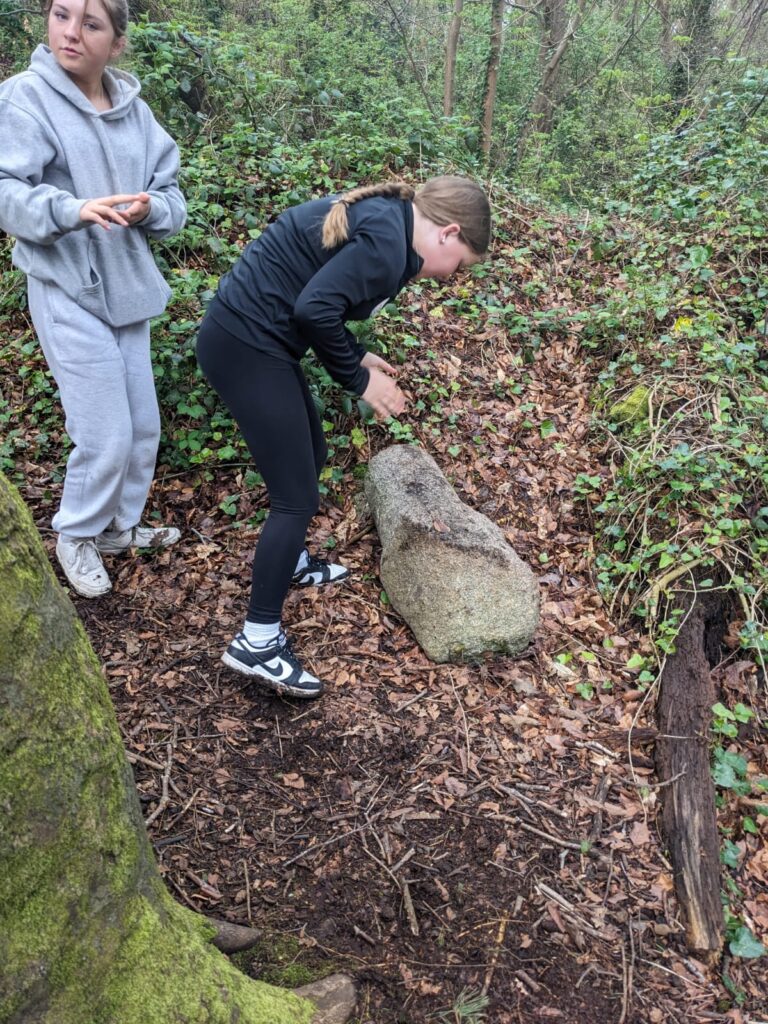
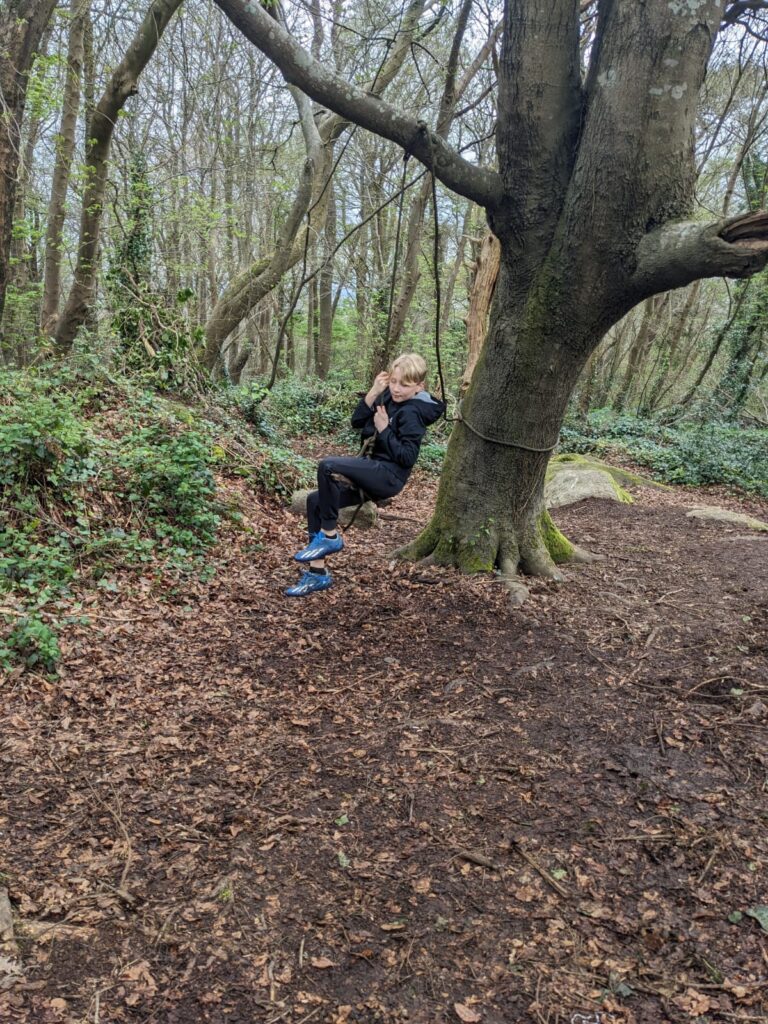
As their final step in Forest School in DSP, they will be leaders for the junior infants and first-class students in the coming weeks, and they will have more responsibilities, and can pass on and share their knowledge, skills, and memories to their juniors in DSP. So, this week, the teacher prepared them for what leaders need to be able to do. They were told to imagine what the junior infants would do when they first come to the forest school – We practiced how to respond to all the questions the little ones might ask, and how to teach some of the games they learnt previously themselves.
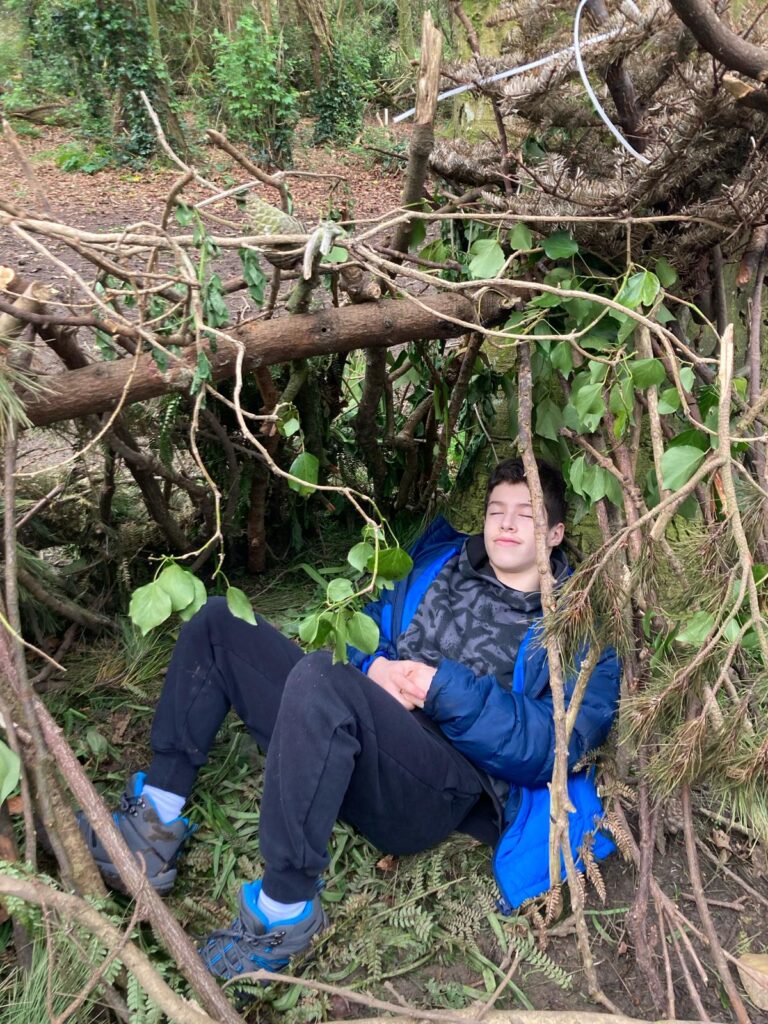
They also had time for their own free play. Some of them went back into their den, some of them made bows and arrows again, some of them put up the hammocks, or played on rope swings and rope bridges. One of the children went and climbed up a tree which she always loved when she was in the younger class. We had a lunch at a spot with a view of the sea and listened to the stories, and had a sit spot. It was a lovely quiet time – everyone looked at the sea, the sky, Bray head or the hill and just enjoyed the moment spent in nature.
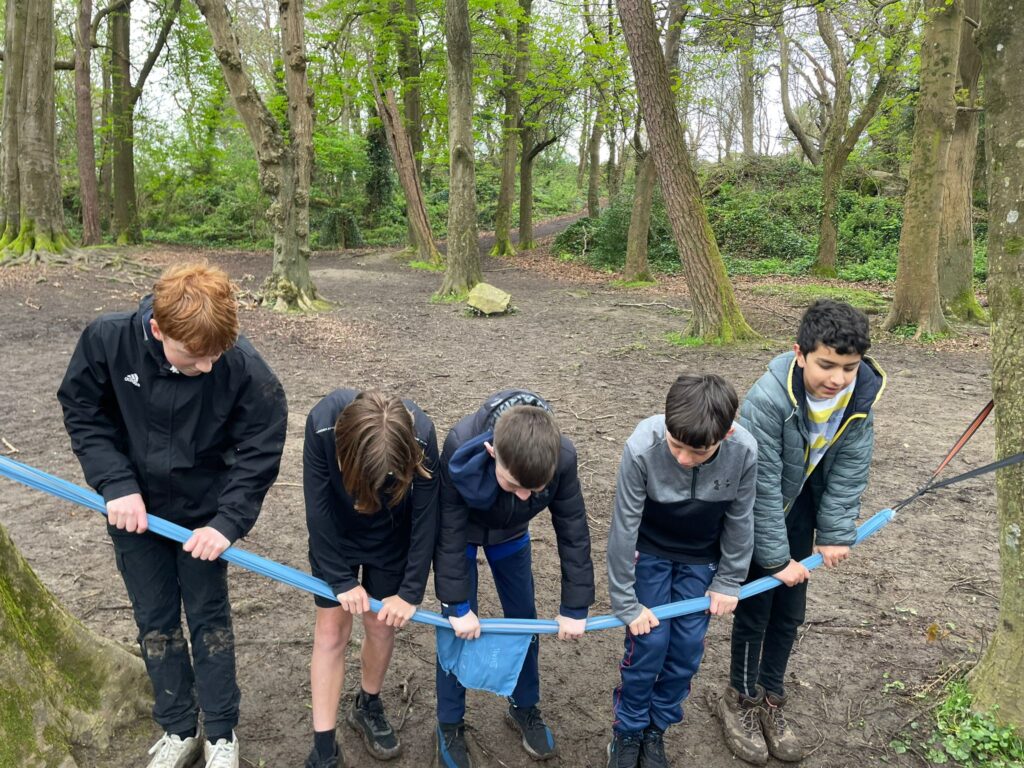
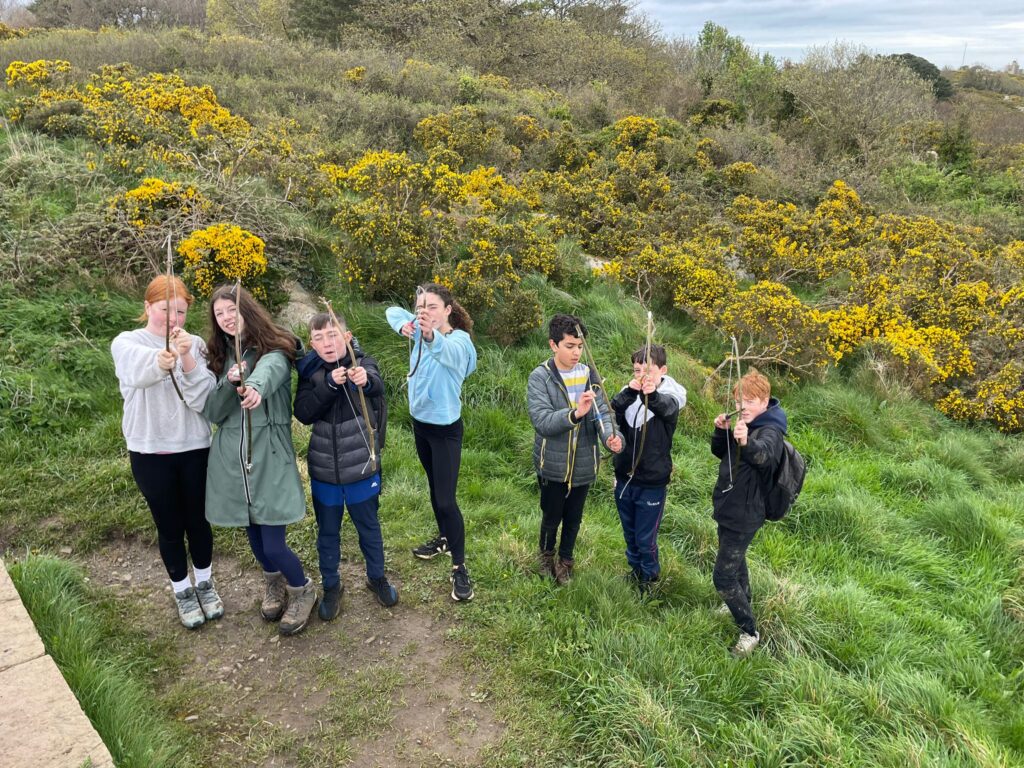
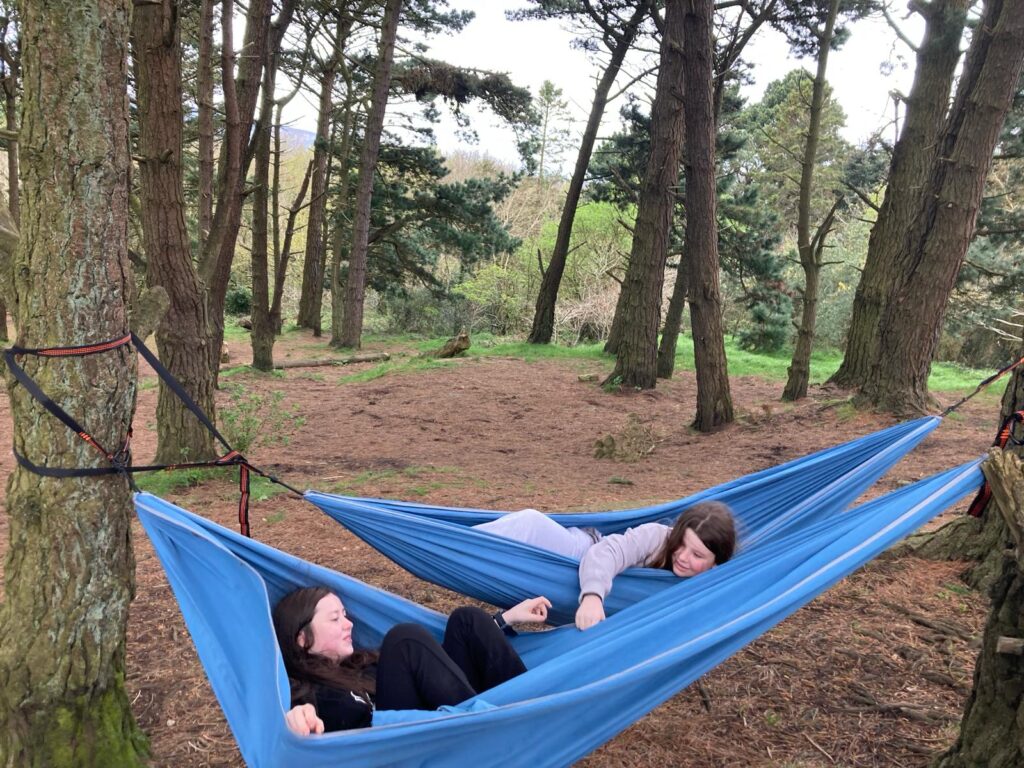
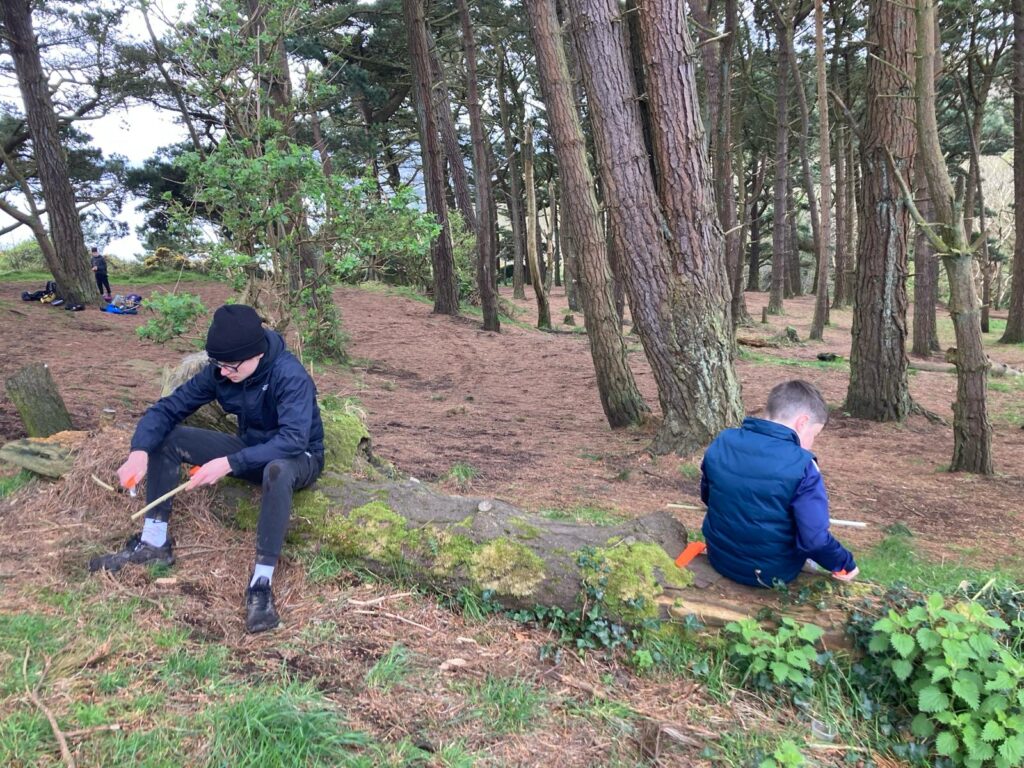
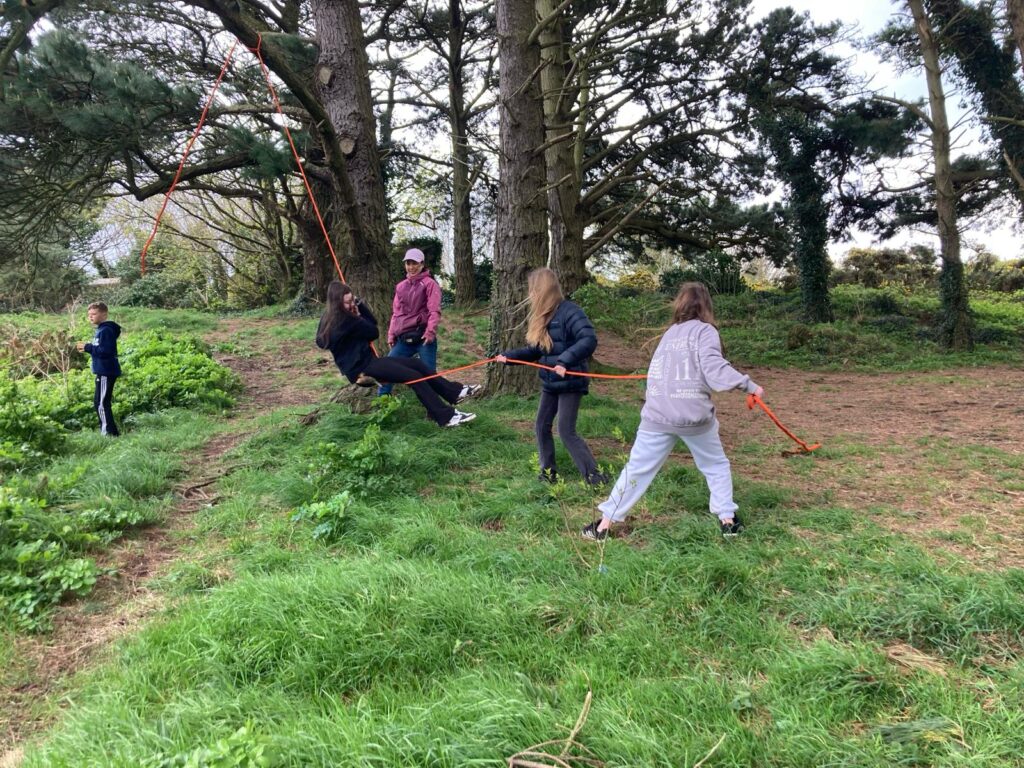
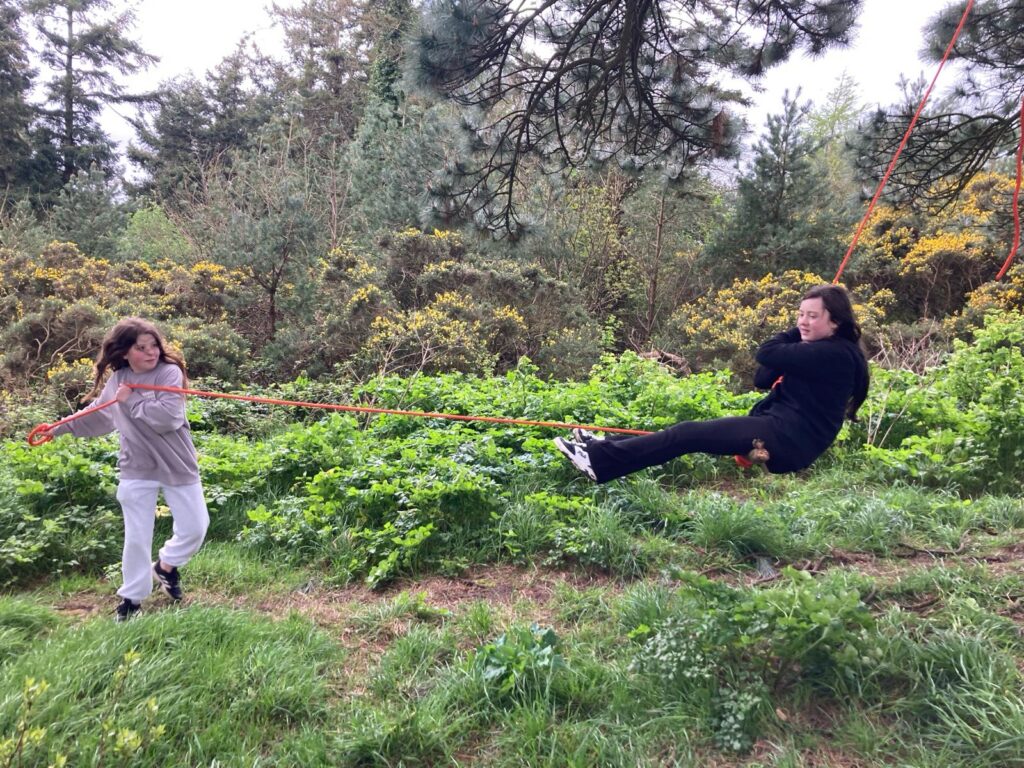
At the end of the session, we shared our favorite memories from forest school in their primary school days. Many of them liked to come to a different environment than the class room or yard. They liked the fresh air, and having their own time for play. Some children liked learning new skills such as putting up hammocks and ropes and rope swings, and for some of them, the time for “sit spot” (being quiet in nature) was an important time for them.
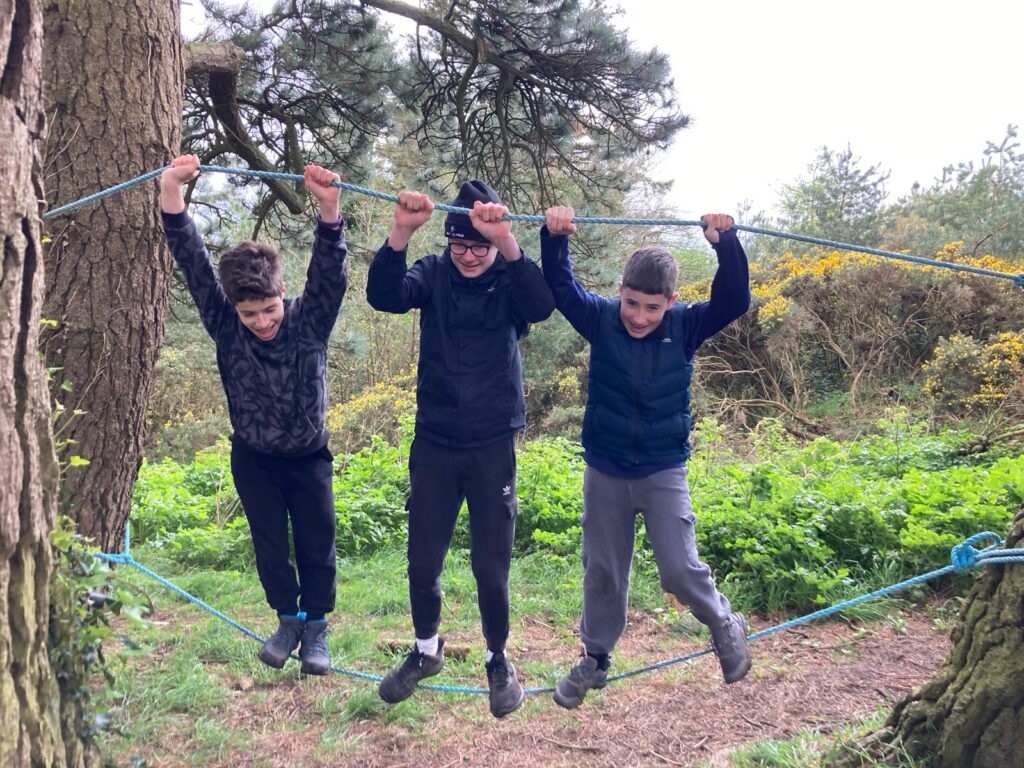
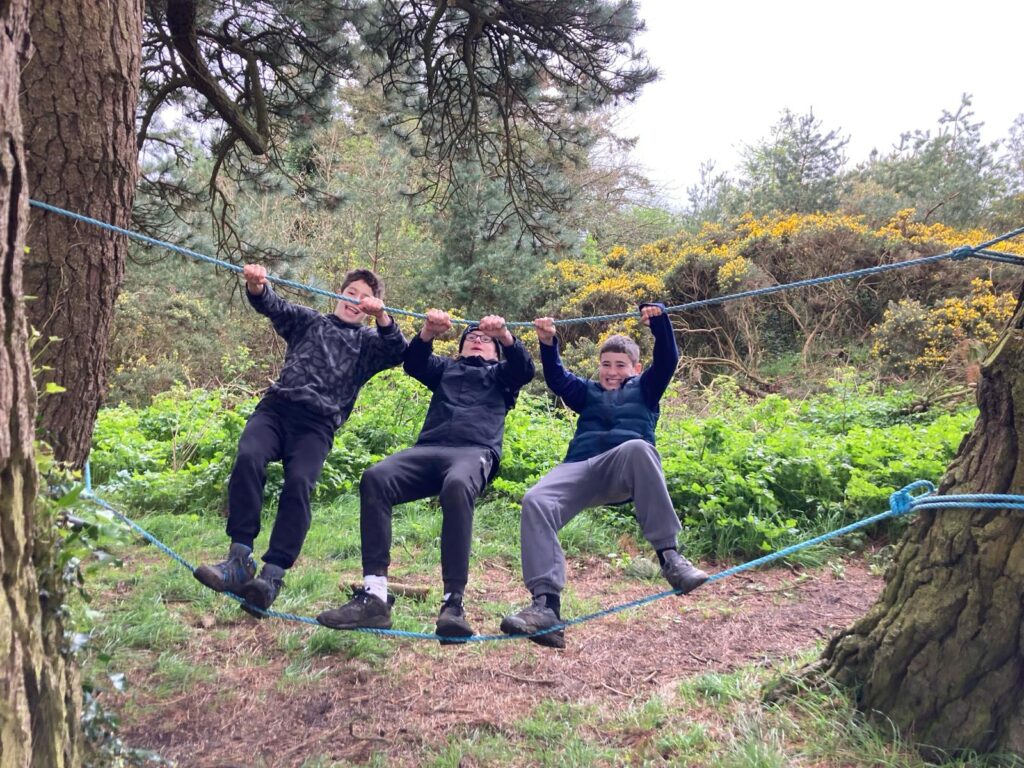
Forest School aims to cater for children’s holistic growth. It helps them know themselves better, using the whole of their bodies and all of their senses, developing their empathy and emotional intelligence. Throughout their time in primary school, the children experience significant development. In each developmental stage, spending time in nature provides important stimuli which will influence their growth. Our main hope is that the children will look back on the experience they had as a meaningful thread running throughout their early education.
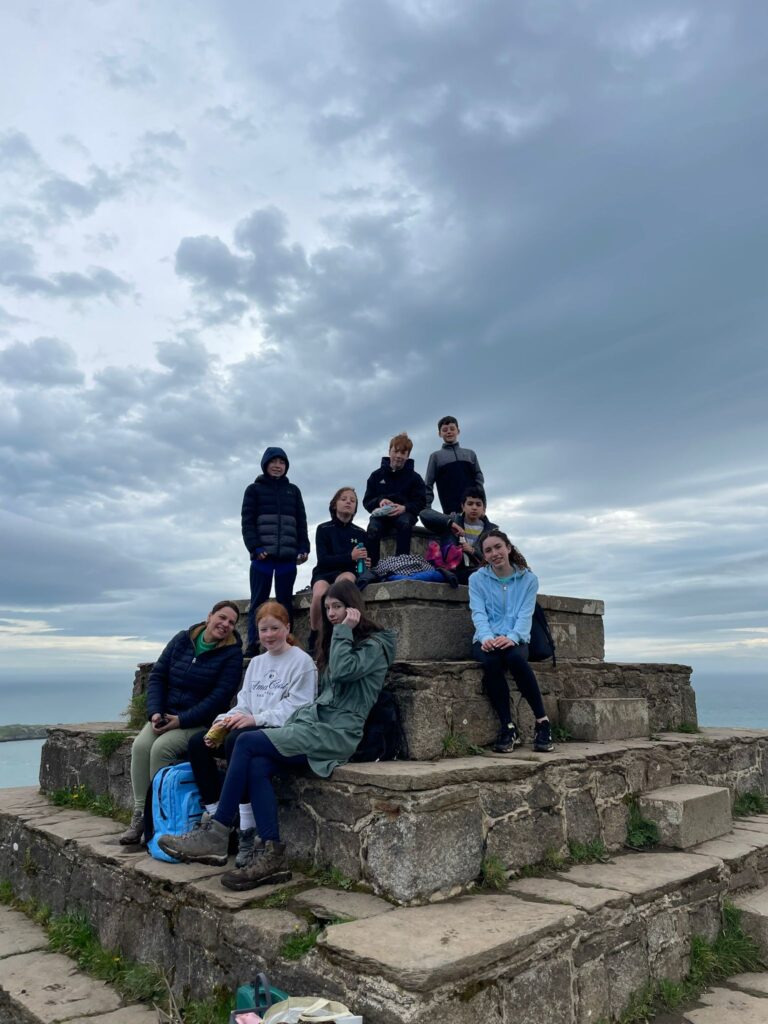
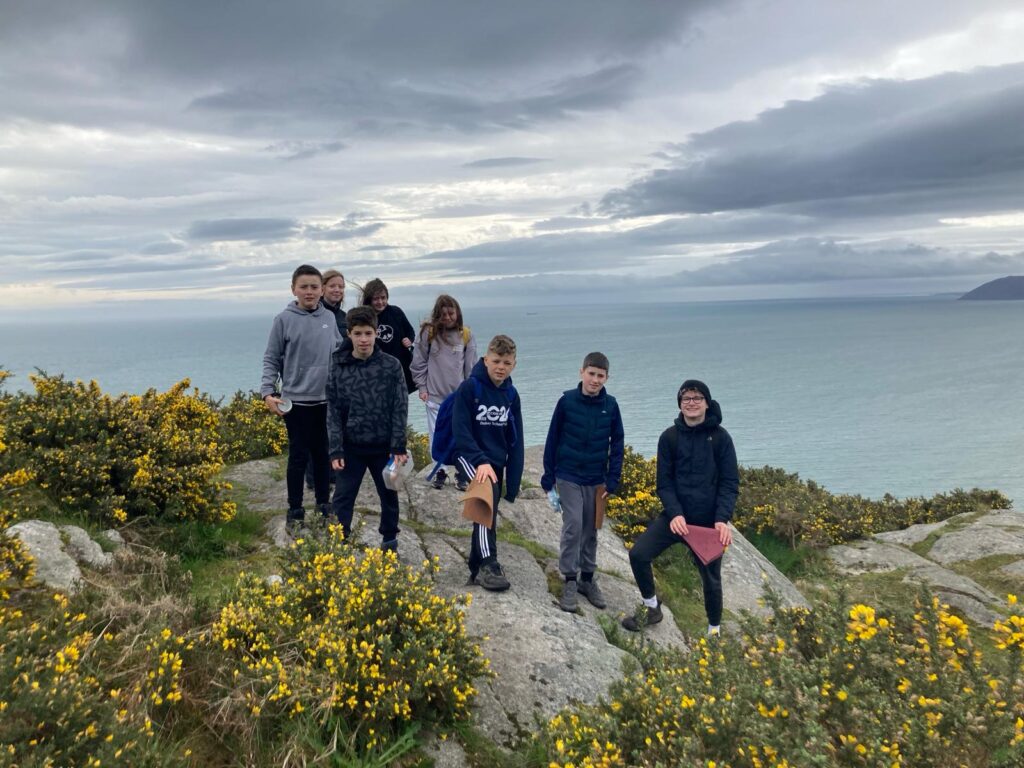
As Sobel (1996) states, “If we want children to flourish, to be truly empowered, we must first allow them to love the earth before we ask them to save it”. Carrying with them our very best wishes, the 6th class children are ready to go onto the next stage in their lives, and spread their wings towards the future.


